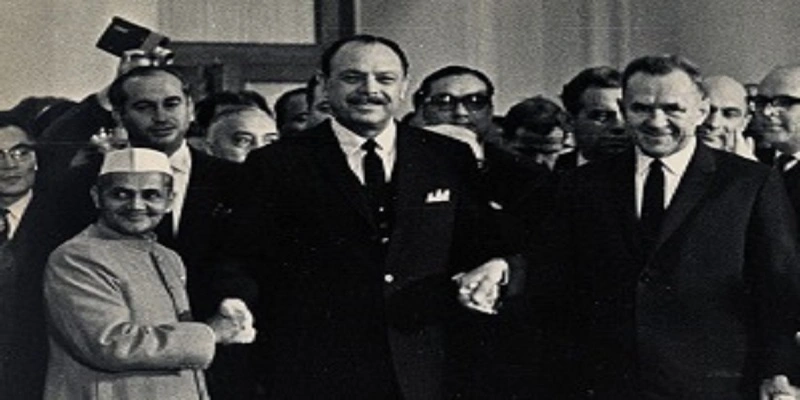Tashkent Declaration 1966: Unraveling the Complex Tapestry of Indo-Pak Relations
Kashmir. Following the independence of the British Government, India remained a constant threat to the security of Pakistan because the Congress leaders began to work towards reversing the partition as soon as possible. India illegally seized numerous regions of Pakistan hook or hook, and by contestable region was Kashmir. The war that began in the conflict over Kashmir was fought between 1947 and 1948. The second war was fought over the same issue in 1965. It was a sign of the hostility that existed between neighbours. The war began on 6 September 1965, with India fighting Pakistan through the border into the dark of night. In just 17 days, many thousands of people were wiped off the planet on both sides. The United States and the Soviet Union required the United Nations to play their part in the peace process and to force them to negotiate an amicable resolution to all issues between the two nations due to the war affecting global peace. The efforts and determination of the United Nations brought peace because both countries ratified the cease-fire. In addition, Soviet Premier Aleksey Kosygin was also a key player in bringing both countries to the table for negotiations as he invited both sides to Tashkent.
President Ayub Khan met on 4 4 January 1966 in Tashkent. Both leaders signed a deal known as"the Tashkent Declaration of 1966.
The key clauses in the declaration are
- The president of Pakistan and the Prime Minister of India have agreed to establish friendship and neighbourly relations per the Charter of the United Nations. According to the UN Charter, the two countries will utilize their efforts to solve their differences peacefully.
- The president of Pakistan and the Premier Minister of India agreed to stop the conflict.
- They also agreed not to interfere with each other's internal affairs.
- Both leaders agreed to stop any action that could harm the other country and to encourage actions that could improve friendship between the two nations.
- They believe that the High Commissioners for Pakistan and India are required to return to their post and contribute efforts to ensure the future development of both countries.
- They have agreed to work to increase bilateral trade and improve economic ties between the two nations. Additionally, they agreed to increase communication and exchange of information about culture with each other.
- The two leaders also agreed to pass an act of repatriation to the prisoners of war.
- They also agreed that in the future, they would discuss the issues of refugees. They also agreed to an agreement on the return of property taken by both sides due to the war.
The president of Pakistan and the Prime Secretary of India both expressed respect and praised the work of the Soviet Union. They appreciated the efforts of the Chairman of the Council of ministers from the USSR for arranging an informal and welcoming gathering. Both leaders thought this statement would be highly beneficial for the region's future.
The declaration was made at the Ministerial level. Still, the reality was that all discussions were in vain, and no conclusion was reached because of significant differences in the public and the Government's opinions about what was known as the Kashmir issue. The public's perception and the excitement cultivated in the mind of Pakistani citizens was that Pakistan was likely to win the conflict. The Tashkent announcement was a rebuttal of this. The declaration shocked them significantly, and people began declaring that Pakistan was the winner on the battlefield but had been defeated at the table. Tashkent's declaration seriously damaged Ayub Khan's reputation and was one of the significant factors that led to his fall.
On the day of the declaration, prime minister Lal Bahadur died of a sudden heart attack. Following his death, no one could accept the declaration, and the subsequent Government rescinded it. In India, the Indian population also opposed this deal because there was no agreement between the President of Pakistan, and the Prime Minister of India had not signed any agreement on the Guerrilla conflict in Kashmir.

